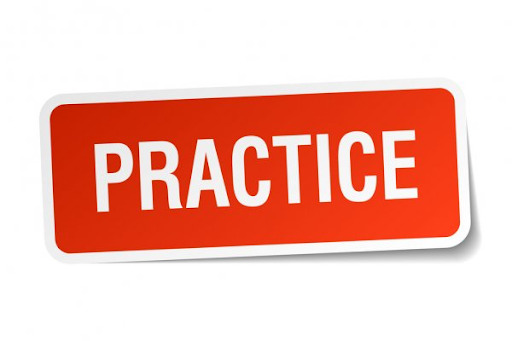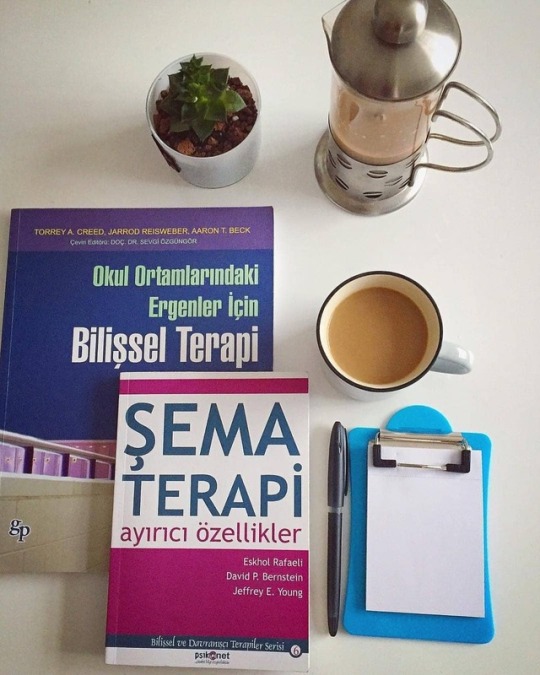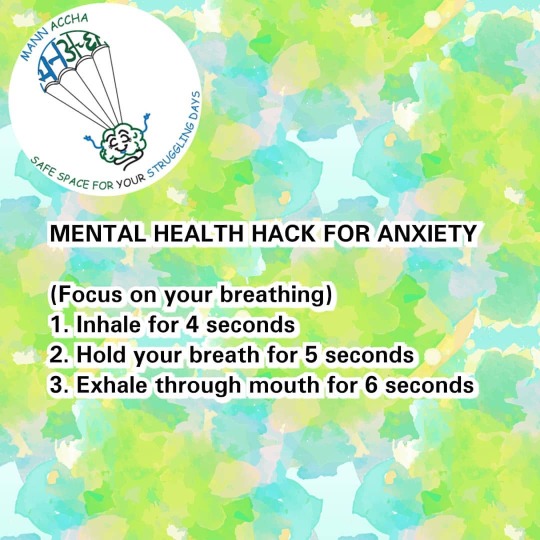#CognitiveTherapy
Text

#DementiaDrugs#AlzheimersMedication#MemoryLossTreatment#BrainHealth#CognitiveFunction#Neurology#MemoryCare#DementiaAwareness#Neuroscience#AlzheimersResearch#BrainHealthCare#MentalHealthAwareness#CognitiveDecline#MemoryMedication#NeurodegenerativeDisease#BrainFunction#DementiaSupport#BrainHealthTips#AlzheimersSupport#CognitiveTherapy
0 notes
Text
Unlocking the Power of Cognomovement: Exploring the Mind-Body Connection for Optimal Well-being, by David Sawin
Dive into the transformative power of Cognomovement. Explore how it bridges mind and body for peak well-being. Unlock your potential and embrace a journey to holistic health. Your adventure starts here. #Cognomovement #HolisticHealth #SelfDiscovery
Credit: David Sawin with The Esoteric Echo and (QSI)
The mind and body are connected in ways that we are only beginning to understand. In recent years, there has been a growing interest in alternative therapies that focus on this connection and help individuals achieve optimal well-being. One such therapy is Cognomovement, a method that combines cognitive therapy and movement to help individuals…

View On WordPress
#CognitiveTherapy#Cognomovement#EmotionalHealing#EmotionalResilience#HolisticHealthTips#HolisticWellbeing#MentalClarity#MindBodyConnection#MindBodyWellness#MindfulnessPractice#MovementTherapy#Neuroplasticity#OptimalWellBeing#PersonalGrowth#PhysicalWellness#SelfCareRoutines#SelfDiscoveryJourney#StressReductionTechniques#TherapeuticMovement#WellnessInnovation
0 notes
Text
0 notes
Text
LEGO Bricks For Therapy
I am not a licensed medical health care professional. However, I think the potential for plastic LEGO bricks to assist medical professionals in their line of work is quite large! These bricks can, quite literally, bridge the gap between the provider and the patient.
Read more here: https://baumlinks.com/2023/03/28/the-therapeutic-effects-of-lego/
1 note
·
View note
Link
Learn about the benefits of Cognitive Behavioral Therapy, a short-term therapeutic process for getting to the core of and treating mental and emotional issues.
0 notes
Link
How can I help people suffer less and live fuller lives?
As a coach and even as an individual how many times have you asked this question to yourself? How many times has your reply to this question been satisfactory? Isn’t this the dream of every coach to help people, to help their clients, their family, and their near ones?
Even to me as a writer, this question drives me every day. How can I help my readers? How can I get them going? How can I add value to them?
During one of my research, I came across the concept of cognitive behavioral therapy. I discovered how CBT might help us replace unproductive ideas and behaviors with more productive ones. I was baffled. The approach looked realistic, collaborative between the therapist and the client, and considerate of individuals seeking assistance. CBT appealed to my humanistic leanings because it implied that we can use what’s whole in us to cure what’s broken. So I finally decided to write about it.
0 notes
Text
The Importance of Practice

Hello, all! Today, I wanted to talk to you about home practice and why it matters in the first place. When you think about self-improvement, recovery, or therapy, what do you think of? Do you envision a magical pill that you take, and all your problems miraculously go away? Or do you believe that improvement comes from effective, organized practice? Well, I’m here to say that at least when it comes to speech-language pathology, targeted practice is the path to recovery whether it is for voice, swallowing, cognitive, speech, or language therapy. Personally, I appreciate this truth. I feel that all too often we are prescribed a medication or an ointment, rather than empowered to achieve our goals or recovery by our own actions. Now, don’t get me wrong; I’d love for there to be a cure for any one of the symptoms I address in therapy, but until all these issues are in the rearview mirror, effective practice and therapy are the best way forward.

What should practice look like?
Any kind of practice must be based on your current level of ability. For example, if you can only effectively lift 20-pound weights, it doesn’t make sense to suddenly increase the weight to 50 pounds. Simply increasing the amount of resistance or increasing the difficulty of the practice alone will not bring about the desired result. Likely, it will just leave you feeling frustrated or when it comes to weightlifting feeling significant pain.
Practice needs to also take into consideration your interests and strive to be as practical as possible. This is especially true for adults. If an adult is working on improving his/her ability to follow through on tasks, it is better to use practical activities where strategies can be integrated in real-time (i.e., incorporating a written list and alarm system to help with effectively cooking and making a meal).
Additionally, practice needs to be geared to specifically what you are working on. For instance, if you are working on improving your reading ability, it doesn’t make sense for you to be practicing pronouncing speech sounds within certain words.
Practice also needs to make sense. So, if you’re not sure why you are being encouraged to complete a task, ASK...why am I doing this? Whether a given task is being recommended by your clinician or by your mom, he/she needs to be able to explain his/her recommendation in a way you can understand.

I am sure you have heard the token phrase that it takes 10,000 hours of practice to become an expert at something but is there such a thing as too much practice. I’m of the mindset that you can practice too much, but you can also practice too little. When it comes to doing therapy tasks at home, what’s the middle ground? Well, unfortunately, I can’t give a definitive answer to that as it is very individualized. However, I do encourage you to pay attention to yourself, your mind, and your body.
Your body is pretty good at letting you know that you need a break or that you’ve done enough for that day. Now, I’m the first to admit that I’m not always the best at acknowledging and responding appropriately to what my body is telling me. I do try to be more responsive to when I may need a break; I do this by reminding myself that I tend to be less effective at completing tasks and doing activities when I’m feeling more tired or burnt out. I also understand that sometimes a task cannot be avoided, but with appropriate preparation and time management, you can better prepare yourself and ready yourself for more effective completion of any given task.
When it comes to learning I think understanding this is really important, because if you’re exhausted, you’re not likely going to retain as much information as when you are well-rested and focused during a given activity. This is also applicable when you are trying to establish new behaviors, habits, and routines. So, remember that managing your energy level and knowing when you are most alert help to establish when you may want to tackle more demanding tasks.

Additionally, know that there are systems out there for time management and I encourage you to incorporate them, especially if it seems like you’re having difficulty establishing a good routine for completing therapeutic exercises. One example of this is the Pomodoro technique where you work for 25-minute periods and then take 5-minute breaks. More traditional practice methodologies incorporate a 50-minute practice schedule and then 10-minute breaks. These are just 2 examples of time management methods for practice.
I think it is also essential to be realistic and have appropriate expectations for therapeutic progress and growth. By setting realistic expectations and achievable goals, you’re setting yourself up for the greatest likelihood of success. Success in practice will likely motivate you to keep working harder and keep pushing yourself. Realize that if you are not making the desired amount of progress you may want to increase the amount of practice. We as people and myself included can settle into doing the bare minimum; just checking off that we did some task without actually applying any true effort to complete it effectively. You’ve probably heard that you get out of something what you put into it, and I think this statement readily applies to therapy. Keep this in mind as you incorporate any kind of therapy or practice at home.
Know that life is going to get in the way sometimes and you may not always be able to set up a perfect environment for practice, but don’t let ‘perfect’ get in the way of ‘good’ and ‘great’. Make the time and practice. When it comes down to it, starting to practice and especially regularly practicing are the biggest and most important first steps to therapeutic growth.

Lastly, I think it is pertinent to try to measure your own progress. Of course, your clinician or therapist will provide you with information on how you are doing and improving. However, taking ownership of your therapy is an integral component of optimal growth and progress. This is your life we’re talking about after all, and I personally want to see every individual I work with succeed. However, sometimes people don’t make the progress I think they’re capable of; that I know they’re capable of and I think part of the problem is lack of ownership when it comes to therapy. I know life is challenging and it’s hard for me to even fathom the difficulty some individuals are going through. But when you take the positive step to seek out therapy to improve yourself, you’re striving for something more. So, keep striving. Empower yourself by tracking your progress, by noting the little successes in every day, and by incorporating consistent, poignant practice.
Thanks for reading and I hope you enjoyed this post. I hope it gave you some perspective on practice and working towards goals. Please check out other posts on my blog.
#growth#improvement#therapy#speechtherapy#better#bebetter#practice#exercise#readingtherapy#routine#behavior#modify#voicetherapy#swallowingtherapy#speech language pathology#cognitivetherapy#memorytherapy#attentiontherapy#dontgiveup#keeppushing#keepgrowing#keepgoing
1 note
·
View note
Link

#brainmapping#brainimaging#methodsofbrainmapping#chronicstress#talkingtherapy#cognitivetherapy#nervoussystemhealth#mentalillness#erasethestigma#mentalhealth#technology
1 note
·
View note
Text
Introduction (very boring submission today)! :)
Yes, you see the name “finding me at 35″. It’s 100% accurate! To me, I am pushing forty and I still don’t have a clue who I am. I am a mother of an eleven year old, a stepmother to two additional children ages fifteen and ten. I’m engaged, not married, but I do go by stepmom. I work full time, run the household, kids to and from sports (baseball mom here), dinner maker, house cleaning machine, and in love with a man who kills it at work, but kills me at home as he’s a video game addict and sleeps all day on the weekends. Yes, it’s a treat!
I have three dogs and a hamster I just adopted. Gus (cavapoo), Murray (lab mix), Archer (german shepherd), and kiwi the hamster. I love animals and if you send me into the pet store to get dog food, more than likely I’m coming out with some sort of cute fluffy thing. I live with severe anxiety and every day is a new adventure. I am in cognitive therapy because I need to change my brain as everyday I manage to diagnose myself with an illness in the middle of my chaotic mom life.
Welcome to what I call my crazy life and I hope some of you share the same experiences I do and we can laugh about it. <3
1 note
·
View note
Photo

PDR NE OKUR? | Eskhol Rafaeli & David Bernstein & Jeffrey Young - Şema Terapi ° ° °📌“Şemalar bizim bildiklerimizdir- bizi zor durumlara soksalar da, bunu bir şekilde tanıdık ve rahatlatıcı yollarla yaparlar. Kendilerini "haklı" hissederler. Bilişel olarak, şemalar dikkatimizi şemanın kendisiyle tutarlı olan bilgiye çevirirler ve bizim şemaya "uygun" şeyleri hatırlamamızı sağlarlar.” 👉🏻Kendimizi biraz daha anlamak, davranışlarımızın altında yatan sebepleri fark edebilmek , temeli erken yaşlarda atılan ve yerleşen şemalarımızı tanımak, anlamlandırabilmek adına oldukça etkili bir kitap Şema Terapi.📚 #okumagunlugu#kitaphayattır#şematerapi#jeffreyyoung#bilişselterapi#pdt#pdrneokur#psikolojikdanışmanlık#okuyorumçünkü#bookstagram#psychology#bookshelf#books#bookandcoffee#cognitivetherapy#psikolojikitapları#instabook#instadaily#picoftheday#kitapönerisi #kitaplığımdan#psikonet #psikolojikdanışman - #regrann https://www.instagram.com/p/BxIKIvrhPKk/?igshid=1mr2cblx4vhas
#okumagunlugu#kitaphayattır#şematerapi#jeffreyyoung#bilişselterapi#pdt#pdrneokur#psikolojikdanışmanlık#okuyorumçünkü#bookstagram#psychology#bookshelf#books#bookandcoffee#cognitivetherapy#psikolojikitapları#instabook#instadaily#picoftheday#kitapönerisi#kitaplığımdan#psikonet#psikolojikdanışman#regrann
2 notes
·
View notes
Photo

"Existe mais na superfície do que nosso olhar alcança." Aaron Beck #terapiacognitiva #terapiacognitivocomportamental #cognitivetherapy #cognitivebehavioraltherapy #CIAC #cliorpcamacari @vitor_souza_mascarenhas @r_tanure @cliorpcamacari Quer saber mais? CIAC - Salvador: 4141-4567/ 3043-5344. CliorP - Camaçari: 3622-5700/99224-0070. Acompanhe também por: Instagram: @psicoterapeutavitormascarenhas Facebook: @psicoterapeutavitormascarenhas Twitter: Psicoterapeutavitormascarenhas Youtube: Psicoterapeuta Vitor Mascarenhas Lattes: 3504656475764958 Vitor Souza Mascarenhas CRP 04408 Sócio-Proprietário das Clínicas CIAC e CliorP Mestre em Tecnologias em Saúde Docente/Supervisor da Clínica me Terapia Cognitiva da UNIJORGE Docente da Pós-Graduação UNIFACS Laureate International Universities Especialista em Terapia Cognitiva Especialista em Terapia Analítico-Comportamental Especialista em Neuropsicologia e Reabilitação https://www.instagram.com/p/CRW-I5lNxsu/?utm_medium=tumblr
#terapiacognitiva#terapiacognitivocomportamental#cognitivetherapy#cognitivebehavioraltherapy#ciac#cliorpcamacari
0 notes
Text
Avoid Toxic People, Places and Circumstances
#boundaries#changeyourmind#cognitivetherapy#communication#compassion#ego#forgiveness#forgivetowin#happiness#innerpeace#love#peace#psychiatrist#psychology#relationships#success#toxic#toxicpeople#trust#vigilance
7 notes
·
View notes
Photo

How many of you are familiar with the the 3Cs in Cognitive Therapy? I find this approach useful in reflecting about the emotions and the associated thoughts that lead me to the emotions. Once you label the emotions and identify the thoughts, you can work towards developing interventions and strategies that can help you better manage your outcomes. Share, discuss and learn more about yourself. #cognitivetherapy (at Singapore) https://www.instagram.com/p/CPaAQJmnvqt/?utm_medium=tumblr
0 notes
Photo

Anxiety is a part of everyone's life.🙋🏻 So here is a hack!🙌🏻 Join us to learn more about mental health and more hacks 🤩 Mental hygiene is important because #MannAchhaTohSabAchha *5 Days to go* for website launch 🎉❤️ Join our Facebook page for more updates https://www.facebook.com/mannachha #MannAchha #mentalhealth #mentalhealthawareness #mentalhygiene #mindfulness #wellbeing #anxiety #anxietyhacks #lifehacks #therapy #counseling #cognitivetherapy #behaviortherapy #talk #psychology https://www.instagram.com/p/B0xOuAEgZ_q/?igshid=1uw4xq6en4079
#mannachhatohsabachha#mannachha#mentalhealth#mentalhealthawareness#mentalhygiene#mindfulness#wellbeing#anxiety#anxietyhacks#lifehacks#therapy#counseling#cognitivetherapy#behaviortherapy#talk#psychology
0 notes